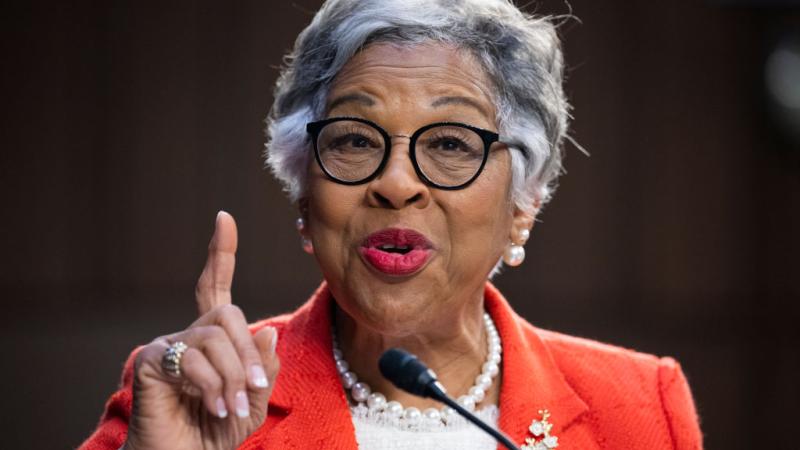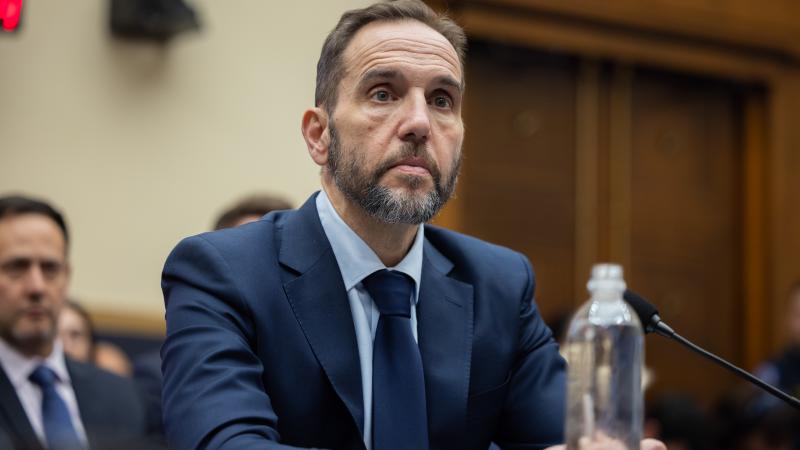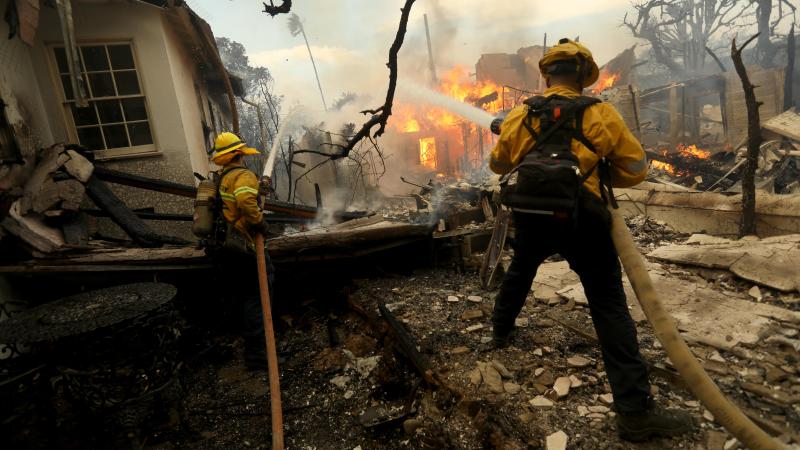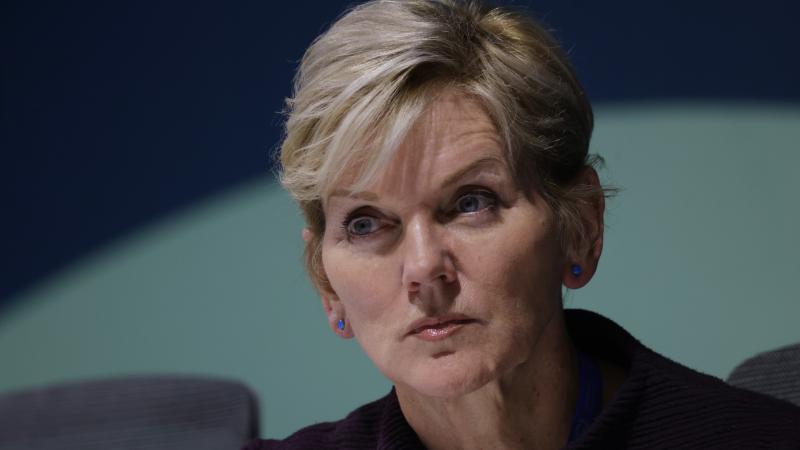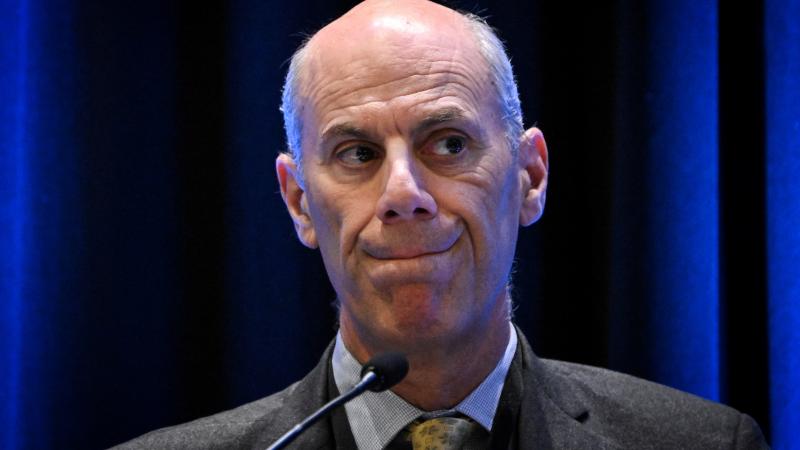Manchin in the middle: Coal state senator caught between voters and anti-fossil fuel Democrats
Democrats' congressional leaders had promised oil and gas permitting reform in next spending bill if West Virgnia lawmaker voted for $740 billion tax and spending bill, but progressives are now in revolt against the deal.
Sen. Joe Manchin (D-W.Va.) — the Senate's perpetual man in the middle — now finds himself caught between progressives opposed to expedited oil and gas permitting and angry constituents deserting him after he agreed to vote for the Democrats' $740 billion Inflation Reduction Act in exchange for a leadership promise to add permitting reforms to the next spending bill.
The mammoth tax and spending bill, which President Biden signed into law on Aug. 16, included an expansion of Obamacare subsidies, a program to lower prescription drug costs for seniors, and more than $380 billion for climate-related initiatives such as tax credits and rebates.
After voting for the legislation in August, Manchin's favorability rating dropped 29 points. In a new poll conducted Aug. 24-26 by the Jackson County radio station WMOV 1360 AM and Oregon-based Triton Polling and Research, 66% of respondents had an "unfavorable impression" of the senator.
In a statement announcing his support for the Inflation Reduction Act, Manchin said Biden, Senate Majority Leader Chuck Schumer, and House Speaker Nancy Pelosi had "committed to advancing a suite of commonsense permitting reforms this fall that will ensure all energy infrastructure, from transmission to pipelines and export facilities, can be efficiently and responsibly built to deliver energy safely around the country and to our allies."
Under the framework of the agreement, Congress would "require the relevant agencies to take all necessary actions to permit the construction and operation" of the Mountain Valley Pipeline, a project that Manchin has long sought to deliver for his state.
Addressing reporters at the White House after Biden signed the Inflation Reduction Act, Manchin explained why he thinks Congress should pass permitting reform.
"I want to make sure it's a balance between the fossil energy that we need and the clean energy we should be investing in," he said. "People might put more emphasis on one or the other. Whatever they do, you're going to have to have permitting reform to get it done."
As an example, Manchin said a transmission line "out in the middle of the desert," a major wind farm or major solar farm can't be built "unless there's an awful lot of permitting cooperation that goes on."
He emphasized that he wanted to "make sure that we get the permitting language that allows us to do what needs to be done in a shorter amount of time."
Schumer said earlier this week that he plans to include permitting reform that would fast-track the development of energy projects in the continuing resolution Congress has to pass before the end of the month to keep the government funded.
Schumer and Pelosi had offered to add oil and gas permitting reform to the next spending bill if Manchin voted for the since-enacted Inflation Reduction Act, but the Democratic caucus hasn't united behind the deal.
Manchin's vote helped put the legislation over the finish line. Democrats used budget reconciliation to pass it along a party-line vote to avoid the legislative filibuster.
Independent Vermont Sen. Bernie Sanders, who caucuses with Senate Democrats, vowed to vote against the CR if it includes permitting reform language. He described the deal Democratic leaders reached with Manchin as a "giveaway" to the fossil fuel industry.
Arizona Rep. Raul Grijalva and 70 House Democrats wrote a letter to Pelosi on Friday urging her not to include permitting reform in the CR.
"The inclusion of these provisions in a continuing resolution, or any other must-pass legislation, would silence the voices of frontline and environmental justice communities by insulating them from scrutiny," they wrote.
Manchin has said he intends to run again in 2024. According to the findings of the recent WMOV/Triton poll, Manchin would lose to GOP West Virginia Rep. Alex Mooney and Republican Attorney General Patrick Morrisey if the election were held today.
The poll also found that Manchin would lose to Republican-turned-Democrat-turned-Republican Gov. Jim Justice in a hypothetical match-up. Justice switched from the Republican Party to the Democratic Party to run for governor. He then switched back to the GOP and ran for a second term.

